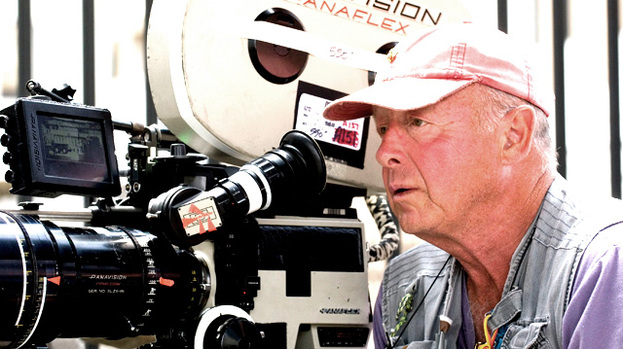Tony Scott: 1944 - 2012
I've genuinely lost count of the number of times I've sat all the way through The Last Boy Scout, a loud and knowingly brash LA-based anti-noir that came with its own opening music video sung by Bill Medley, continued through some classic deadpan one-liners from star Bruce Willis in the role of near-psychopathic cold-blooded murderer-cum-PI Joe Hallenback, culminates with Damon Wayans' day-saving hundred-yard throw despite a bullet through his million-dollar hand, and then ends on an uplifting note as the male lead tells his wife that he wished he could spit in her face. Its fantastic and I love it and I am gutted that its director, Tony Scott, took his own life after being diagnosed with incurable brain cancer.
Scott's legacy is a healthy and populist one full of star vehicles and glossy action scenes from his mid-80s era-defining Top Gun to later efforts like his remake of Man On Fire, a film whose artistic legacy is far-reaching as it brought the world the slow motion shot of a male lead walking away from an explosion in the background with nary a glance back, which has gone on to become a defining image of male badassery in popular culture despite the original explosion in question being caused by a bomb stuffed up a man's arsehole and the reason the male lead was walking away from the explosion was because he didn't want to get splashed with burning poo.
Though he could have easily been an arthouse scumbag making movies about gay cops or something, Scott rarely let down the teenage me because he was a populist entertainer rather than a cinematic auteur, with movies tailor-made for loud, crashing soundtracks and tense stare-downs between male leads, but unlike many of his action movie contemporaries he could actually direct an action scene, his camera often prowling around looking for a new angle on particular elements of scenes rather than just jumping about to give a false sense of vérité during fisticuffs. It's a trait I only really see in Eastern directors or those low-budget film-makers who cut their teeth on action television in the 1970s and 1980s, and is a method based in the belief that the audience should be able to follow what is happening in something as base and vulgar as a fight scene rather than simply figuring out who won by seeing who's standing come the scene change. Scott was a film-maker for whom the narrative mattered in ways both small and large and for whom gloss was stage-dressing for the story no matter how slight that story ever became, and screw it, I'm gonna go watch Last Boy Scout again.


No comments:
Post a Comment